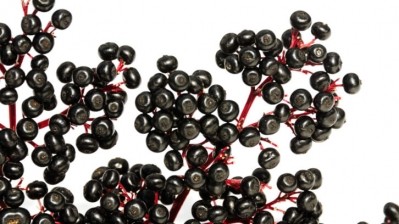Majority of immune supplements bought on Amazon found to have labels that don’t match contents

The new study is the work of a team at the National Center for Natural Products Research at the University of Mississippi, the Uniformed Services University and the Henry M. Jackson Foundation for the Advancement of Military Medicine. The study was published in the journal JAMA Network Open.
The researchers purchased 30 supplements on Amazon that were being marketed with immune health claims. Their method of selection was to do a search on Amazon using ‘immune’ as a key word. The first 30 supplements that popped up that had ratings of four or more stars were purchased.
Samples of the 30 supplements were sent to the team in Mississippi for analysis. Liquid chromatography–mass spectrometry was used to test for the compounds or ingredients listed on the label. Hidden compounds were also analyzed except for lipids and elements.
Many products missing ingredients listed on labels
The researchers ended up with a product selection that ranged from one ingredient to as many as 32 listed on the labels. Analysis found that of the 30 products, only 13 had labels that accurately reflected their contents both in the presence and concentration of ingredients. Of the other 17, 13 listed ingredients on the labels that were not detected in the products. The missing ingredients ranged from one to as many as six for any individual product.
The missing ingredients were mainly plant extracts. They included Aloe vera leaf extract, astragalus root extract (Astragalus membranaceus), eleuthro (Eleutherococcus senticosus) root, garlic bulb extract (Allium sativum L.), ginger root extract (Zingiber officinale L.), horehound (Marrubium vulgare), Isatis tinctoria root extract, Japanese catnip (Schizonepeta tenuifolia), licorice (Glycyrrhiza glabra), and slippery elm bark (Ulmus rubra Muhl).
In addition, vitamin B12 and folate were found to be missing in one product.
In the case of nine supplements, the researchers found ingredients in the bottles that were not declared on the labels. Three products that claimed elderberry on the label contained Oryza sativa (black rice seed). As has been reported elsewhere, this is a common adulterant of elderberry ingredients. Other undeclared ingredients included pantothenic acid, Polyethylene glycols and others.
Claims not linked to research
The researchers also offered their thoughts as to the claims on the labels. Claims included “all seasons immune support,” “immune strengthening ingredients,” and “a powerhouse immune system booster.” In addition, 15 of the products had additional label language that appeared to link claims with scientific evidence, including “research based,” ”scientifically proven” and “supported by…gold-standard clinical studies.”
“Some other claims sounded scientific but did not have any peer-reviewed publication cited. Therefore, it is unknown how or whether these claims were substantiated,” the researchers said. “The claims made on those labels may mislead consumers into purchasing products when information on whether they are actually beneficial is limited.”
They noted that a separate research effort is underway to try to determine to what degree claims in the marketplace are supported by actual research.
Buyer beware
The authors concluded that it’s buyer beware when purchasing supplements on Amazon.
“This case series analysis suggests that quality control measures have not been sufficient for most immune health dietary supplement products advertised and sold on the Amazon website. . . . Consumers should be aware that these products may potentially not contain what is stated on the label. Continued research and evidence-based educational resources will assist consumers in making informed decisions about dietary supplements,” they wrote.
Source: JAMA Network Open
2022;5(8):e2226040. doi:10.1001/jamanetworkopen.2022.26040
Analysis of Select Dietary Supplement Products Marketed to Support or Boost the Immune System
Authors: Crawford C, et al.













